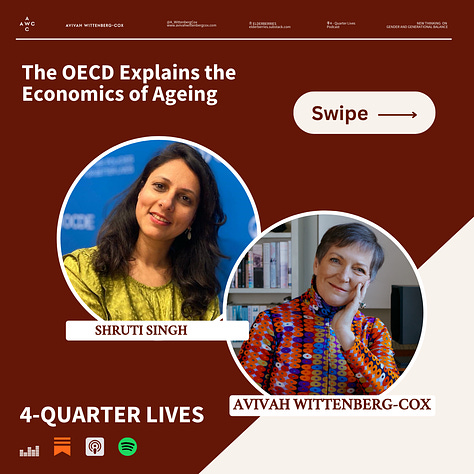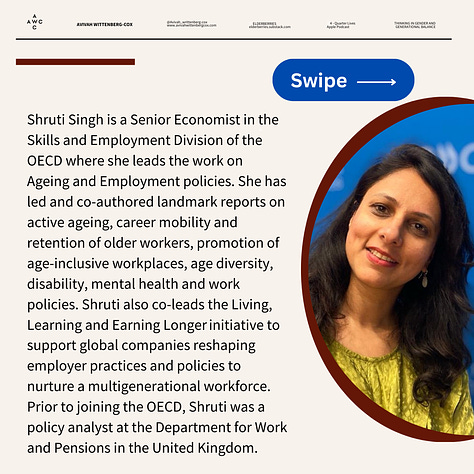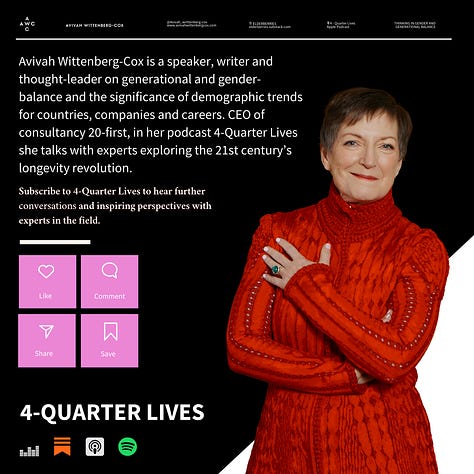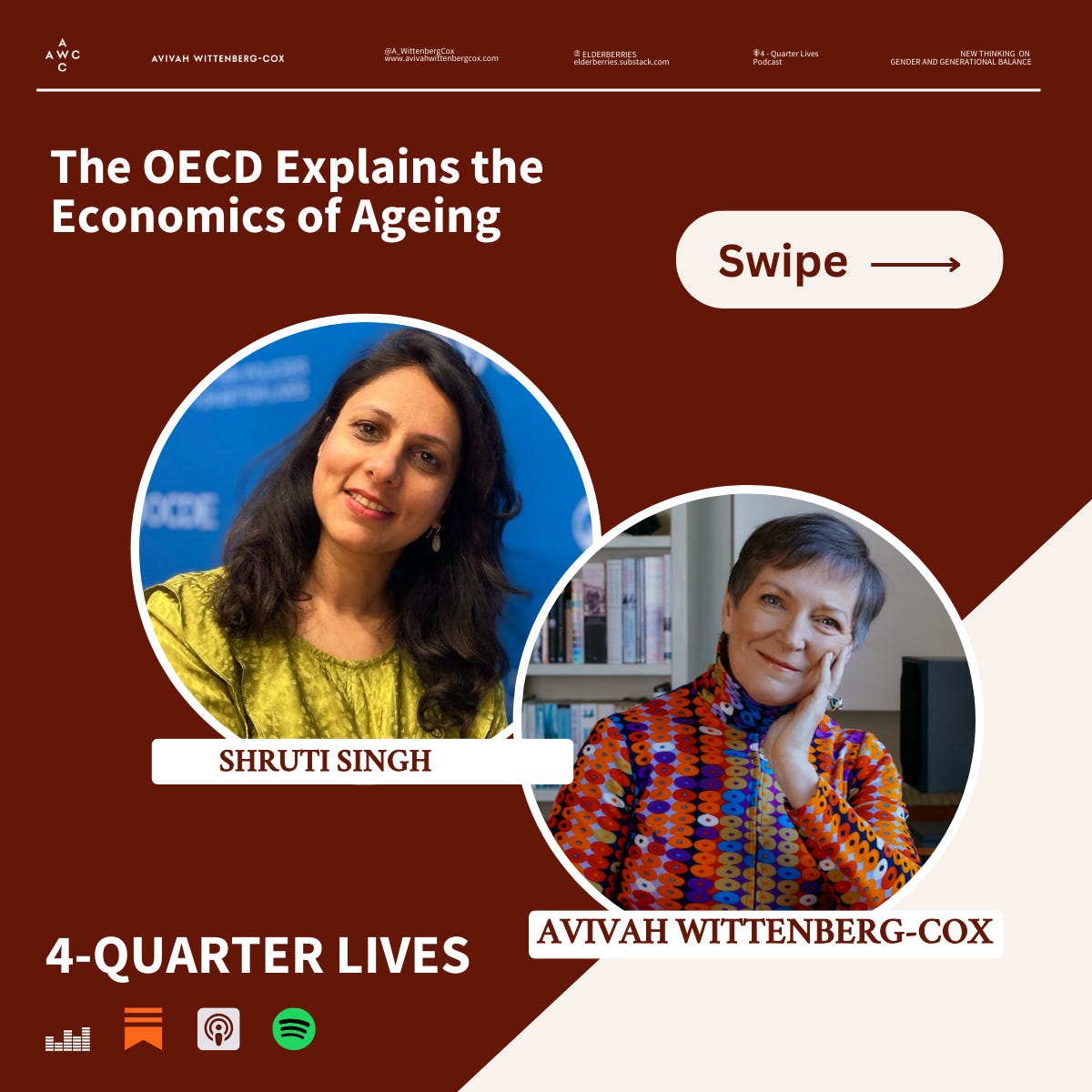This week on 4-Quarter Lives, Avivah Wittenberg-Cox talks with Shruti Singh, Senior Economist for Ageing and Employment Policies at the OECD. The OECD has been studying workforce ageing for over 30 years, with a shift from focusing on financial risks towards the opportunities this change offers. Shruti set out the business case for age diversity, the importance of flexibility, current barriers to mid-career job changes and persistent age discrimination in hiring. Both policy and mindset change are needed to adapt to longer working lives. She and Avivah discuss attitudes to work flexibility, the sharp decline in job changes after age 50, the issues for older workers seeking new jobs and the huge value of mid-career reviews, ongoing training and micro-credentials and the case fo government support for retraining costs. Finally, Shruti describes an index the OECD is developing that will explore companies’ and organisations’ ‘age-friendliness.’
Shruti Singh is a Senior Economist in the Skills and Employment Division of the OECD where she leads the work on Ageing and Employment policies. She joined the OECD in 2007, and has since then, led and co-authored several landmark reports in the area of active ageing, career mobility and retention of older workers, promotion of age-inclusive workplaces, age diversity, disability, mental health and work policies. Shruti also co-leads the award-winning initiative Living, Learning and Earning Longer to support global companies reshaping employer practices and policies to nurture a multigenerational workforce. Prior to joining the OECD, Shruti was a policy analyst at the Department for Work and Pensions in the United Kingdom where she was responsible for designing and providing policy advice on UK’s key labor market policies.



Some Useful Links:
OECD Report: Promoting an Age-Inclusive Workforce
OECD Report: Retaining Talent at All Ages
OECD Report: Working Better with Age












Share this post